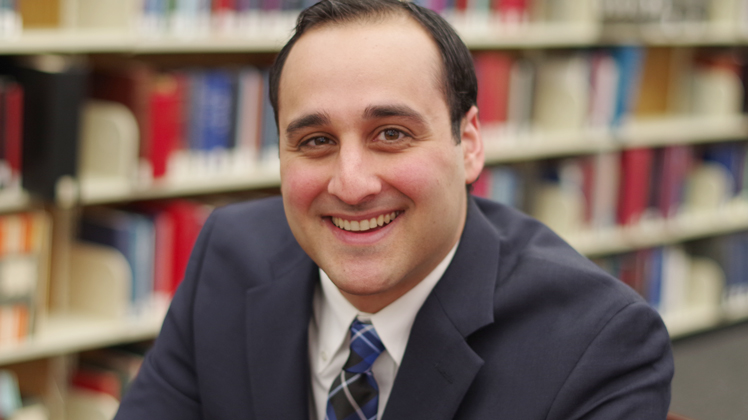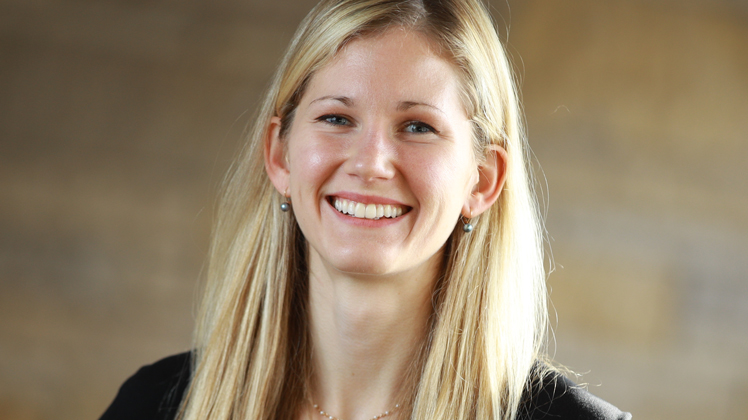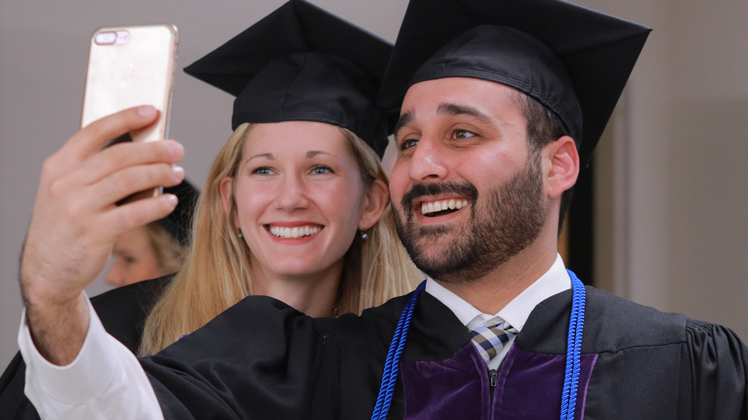Joint Degree in Law + Medicine
Earn your law and medical graduate degrees in an accelerated period of study, generally six years. This joint degree is one of roughly two dozen such programs in the country. It is designed for law students driven to work at the intersection of law and medicine, who seek opportunities to shape the future of healthcare policy.
Admissions
The program is jointly administered by the College of Law and the College of Medicine and Life Sciences. You must apply and be admitted separately to each college. Academic advising is provided by each college. The decision to admit or not to admit is based solely on each college’s selection criteria.
Tuition & Scholarships
If you enroll in both colleges in any semester, the highest tuition rate will apply to all credit hours taken. We encourage you to explore how a joint degree may impact your financial aid or scholarships. College of Law scholarship funds cannot be used to cover coursework outside of the law school.
Integrated Curriculum
Juris Doctor
The College of Law requires the successful completion of 89 credit hours to earn your J.D. degree. You may apply up to 13 credit hours completed in the College of Medicine and Life Sciences toward this requirement. For an M.D. course to qualify for credit toward your J.D. degree, you must earn a grade of "pass" or better. Under American Bar Association guidelines, College of Medicine and Life Sciences courses must be taken after enrollment in the College of Law to be eligible for credit toward your J.D. degree.
Doctor of Medicine
You may apply up to 13 credit hours of approved, upper-level courses in the College of Law toward requirements for your M.D. degree. For a law course to qualify for credit toward your M.D. degree, you must earn a C (2.0) or better. In conjunction with Associate Deans from each college, a committee will determine which courses can be cross-counted. Review credit requirements from the current graduate catalog for the M.D. program within the College of Medicine and Life Sciences.
Alternative Courses of Study
Once admitted to both programs, you will follow a course of study alternating years in the two colleges with summers generally reserved for electives, law or medicine-related employment, supervised research, or study for the U.S. Medical Licensing Exam or a state bar examination. The final year will include one semester in each college. The program has two alternative courses of study below. If you wish to vary from the standard course of study, you may apply for approval from the College of Law and the College of Medicine and Life Sciences. If the variation only affects your course of study in one college, approval from only that college will be necessary. Variations that affect your course of study in both colleges will require the approval of advisors from both colleges.
Alternative #1
Complete preclinical medical courses in years one and two, followed by core law courses in year three, and upper-level and elective law courses in year four. During the fourth year, complete the "Clinical Training for M.D./J.D. Students" elective. Complete required clerkships in medicine in year five. Your sixth and final year includes a combination of elective medical clerkships and upper-level law courses and legal clinics. In the summers, you complete USMLE exams and both medical and law electives.
Alternative #2
Complete core law courses during year one, preclinical medical courses during years two and three, and advanced law classes during year four. In the fourth year, complete the "Clinical Training for M.D./J.D. Students" elective. Complete required clerkships in medicine in year five. As in the first alternative, your sixth and final year includes a combination of elective medical clerkships and upper-level law courses and legal clinics.
Awarding of Degrees
You will not receive a J.D. or M.D. degree until you complete all the work required for both degrees. If you withdraw from the joint degree program and remain in either the College of Law or the College of Medicine and Life Sciences, you shall only receive credit for work in the other college as the Dean authorizes under the rules of that college. Degrees must be awarded within time limits established by the participating colleges.
Bar Exams & Medical Residencies
Following graduation, medical residencies typically start in early July with state bar exams offered in late July. You may wish to begin your bar review preparation early if the length of time between your law courses and the bar exam is longer than usual. You will be advised of potential conflicts between the bar exam date and the start of your medical residency so that you can consider alternative courses of action. It may be possible to negotiate time off to take the bar exam in the first month of your residency. If the residency denies your request, you may postpone the bar exam until you identify the state where you will complete your medical residency. If you do not intend to practice law, you may also choose not to take the bar exam.
Testimonials

Mark Fadel '19
University of Pittsburgh Residency, Otolaryngology

Alexis Holman '19
University of Michigan Residency, Anesthesiology
"With the changing face of healthcare — the shift to bigger medicine and increase in regulation — I was interested in trying to give physicians a seat at the table to help shape the future of care delivery in the United States."

In the News
Fadel and Holman were the first graduates of the UToledo J.D./M.D. program in 2019.
The students each earned first place in the American College of Legal Medicine Student
Writing Competition in back-to-back years. Explore their journeys and next steps as
they begin their medical residencies. Read Story
Contacts
Shelley Cavalieri
College of Law
Professor of Law and J.D./M.D. Program Advisor
419.530.2871
Shelley.Cavalieri@utoledo.edu
Evan Zoldan
College of Law
Associate Dean for Academic Affairs
419.530.4107
Evan Zoldan@utoledo.edu
David Sohn
College of Medicine and Life Sciences
Associate Professor and J.D./M.D. Program Director
419.383.5665
David.Sohn@utoledo.edu
NOTE: The College of Law recommends that you remain apprised of academic requirements for each degree you pursue. While we make every effort to maintain timely information relating to joint degree programs, because other colleges manage their curricula and requirements, it is possible that information on this site could be out of date. For additional information, please review the other college's website.


